
Resources
Many of these resources originate from nationally recognized experts and leaders in trauma, grief, loss, and child and adolescent psychology. Some are created by educators, researchers, and industry professionals, while others may be the firsthand accounts of individuals who have experienced loss or supported someone who has.
Self-Management
Description: Learn how to teach children ways to manage their feelings and turn them into positive actions, including creating a calm and regulated environment, showing how to manage impulses, and discussing ways to resolve conflicts.
Source: PBS
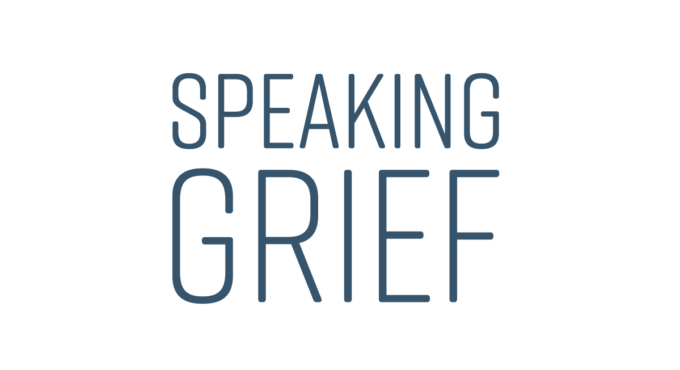
Speaking Grief
Description: Speaking Grief is a public media initiative aimed at creating a more grief-aware society by validating the experience of grievers and helping to guide those who wish to support them.
Source: WPSU
Suicide Grief for Children & Teens: How to Answer Tough Questions
Description: Suggestions on how to handle other people's questions when grieving the death of a person in your life to suicide.
Source: Eluna Network
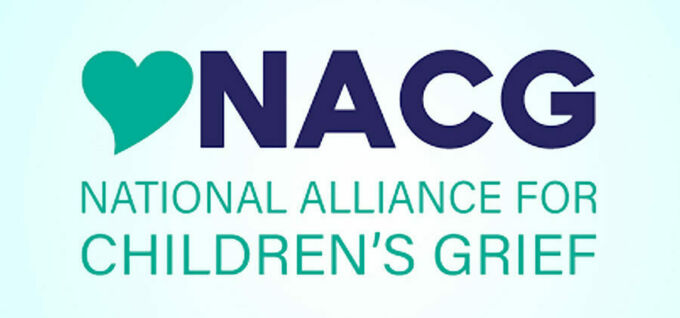
Supporting a Friend Who is Grieving Poster
Description: Poster for 6th-12th grade students. Provides four ways a student could help a peer who is grieving and four things that might hurt. | Distributed by NACG.
Source: NACG

Supporting Children of All Abilities Who Are Grieving
Description: Toolkit created by NACG members for support professionals who are working with children of all abilities who are grieving.
Source: NACG
Supporting Grieving Children with Autism
Description: Guidance on telling a child with Autism about a death, supporting them after you share the news, and navigating funeral/mourning ritual attendance as well as downloadable Autism Grief Support Visuals.
Source: Eluna Network
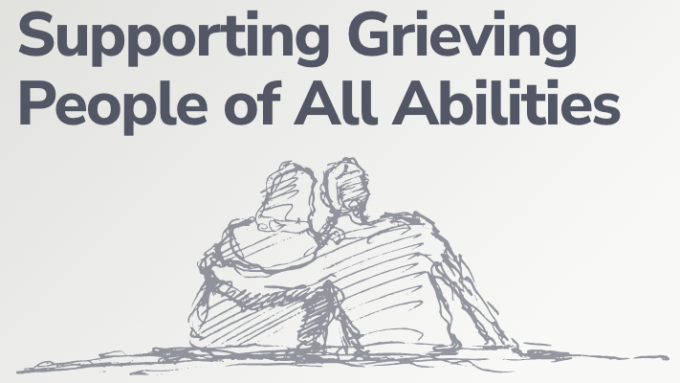
Supporting Grieving People of All Abilities
Description: Information and resources for supporting people with neurodivergent conditions like Autism Spectrum Disorder, ADHD, sensory processing disorders, and Down syndrome, among others.
Source: WPSU, Speaking Grief

Supporting Immigrant Youth Exposed to Trauma & Loss
Description: In this webinar, Dr. Priscilla Mendez, PsyD, discusses ways to support immigrant youth exposed to trauma and loss. The focus of this webinar includes a brief overview of trauma and grief and the importance of distinguishing the two constructs.
Source: Meadows Mental Health Policy Institute
Supporting Individuals on the Autism Spectrum Coping with Grief and Loss through Death or Divorce
Description: Loss and grief, death, and divorce are difficult subjects to discuss. It is important to understand the grief process your family member, student, friend, or client with an autism spectrum disorder is experiencing and be prepared to provide the appropriate support.
Source: Indiana University Bloomington

Supporting Students Exposed to Trauma & Grief: Tips for Teachers
Description: This presentation addresses how educators can support students who have experienced trauma or the death of a loved one by providing guidance on what to say to the student, their classmates, and how to recognize signs that the student may need additional support, offering concrete strategies to create a safe and nurturing classroom environment.
Source: Meadows Mental Health Policy Institute

Take Note: Dr. Tashel Bordere on Suffocated Grief
Description: WPSU's Lindsey Whissel Fenton interviews Dr. Tashel Bordere. | Dr. Tashel Bordere's research focuses on grief and loss among African American youth and has identified the term suffocated grief to describe when normal grief reactions among marginalized populations are not only dismissed, but punished.
Source: WPSU
Talking with Kids About Feelings
Description: Social-emotional learning can be part of your everyday activities!
Source: Sesame Workshop
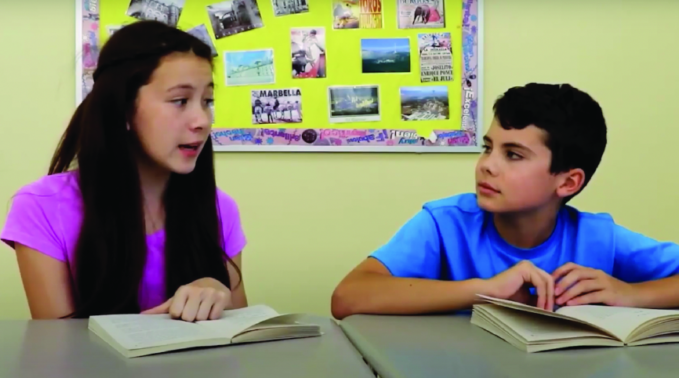
Teaching Active Listening Skills to High School Students
Description: An easy-to-implement, no-prep activity that educators can use to teach high school students how to show they are actively listening during conversations.
Source: Everyday Speech

Teaching Kids About Boundaries
Description: This article emphasizes the importance of teaching children empathy, self-awareness, and boundary-setting skills.
Source: Child Mind Institute

Teen Do and Don't Poster
Description: Guidance for adults working with grieving teens who might be nervous and not know what to expect or have had a bad experience with grief support.
Source: NACG

The Challenge We Face
Description: A video segment that explores secondary losses for children in the foster care system.
Source: Camilla Network
The Feelings Garden
Description: A video to help children explore — and learn to take care of — different feelings.
Source: Sesame Workshop
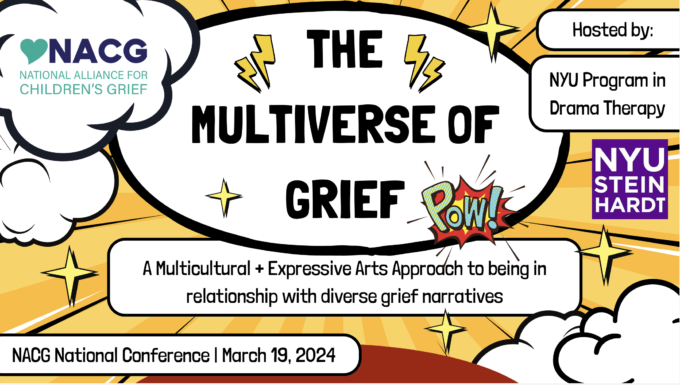
The Multiverse of Grief - 2024 National Conference and Webcast Slideshow
Description: A PDF version of the slideshow that accompanies the presentation by the same name.
Source: NACG

The Multiverse of Grief - "My Graphic Novel" template
Description: During the 2024 National Conference and Webcast, presenters used the "My Graphic Novel" in an experiential presentation, demonstrating how to use "My Graphic Novel" in grief and loss support.
Source: NACG

The Multiverse of Grief - 2024 National Conference and Webcast
Description: A multicultural and expressive arts approach to being in relationship with diverse grief narratives. Hosted by Adam D-F. Stevens, MA, RDT. Presented March 19, 2024.
Source: NACG

Understanding & Supporting Grieving Youth: A Scientist-Practitioner Approach
Description: This workshop addresses the need for tailored grief support strategies for children, particularly in the context of the COVID-19 pandemic, emphasizing the importance of understanding individual needs and utilizing evidence-based practices to address challenges in grief processing.
Source: Meadows Mental Health Policy Institute
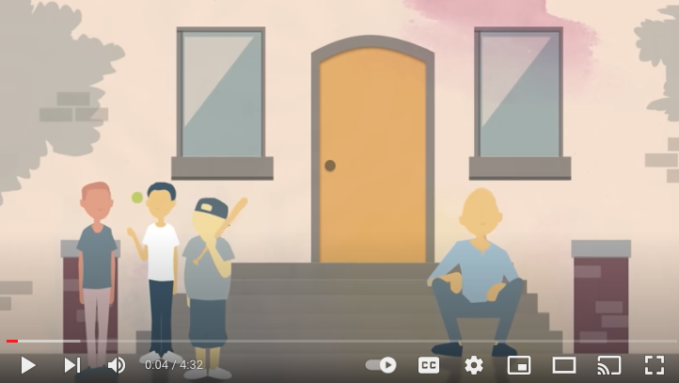
We Can Prevent ACEs
Description: Childhood experiences, both positive and negative, have a tremendous impact on future violence victimization and perpetration, and lifelong health and opportunity. As such, adverse childhood experiences (ACEs) are an important public health issue. Learn how everyone can help prevent ACEs by using strategies to create safe, stable, nurturing relationships and environments for all children.
Source: CDC
What is Death (Social Story)
Description: A resource from HEARTplay for explaining death to young children. www.heartplayprogram.org
Source: HEARTplay
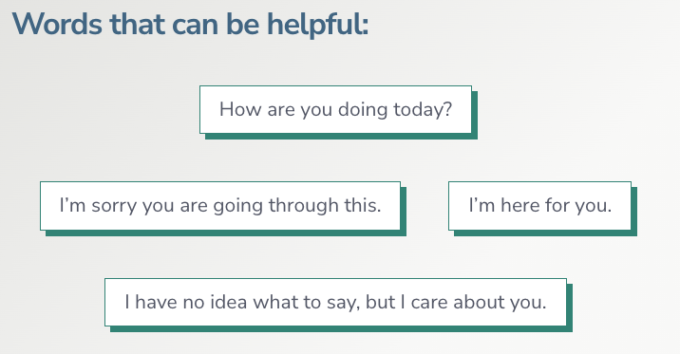
What to Say
Description: Helpful words and brief videos about words that are welcome and support grievers.
Source: WPSU, Speaking Grief
